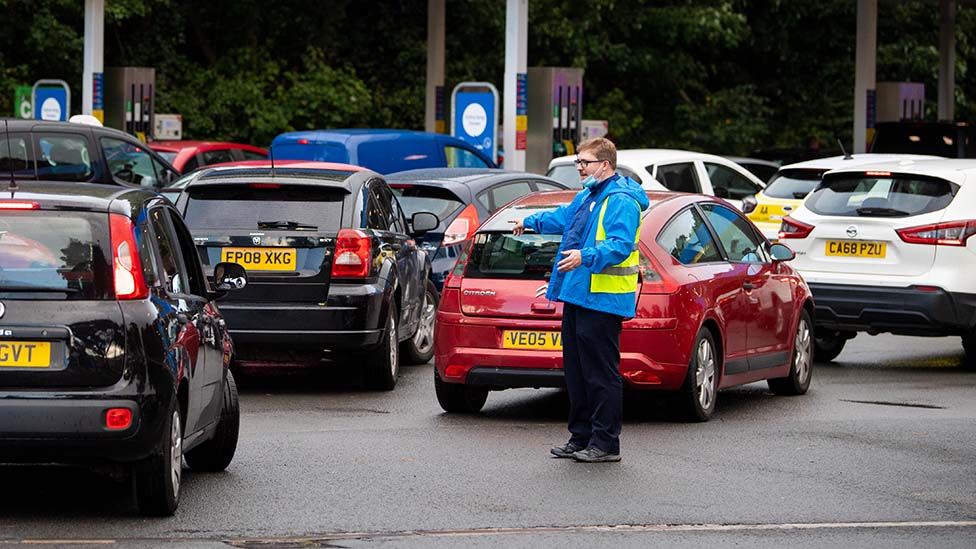
People in four and two-wheelers lined up for fuel as fuel pumps and stations across several British cities ran dry on Monday. Read to know all about the fuel shortage in the UK.
What’s the reason behind the fuel shortage and crisis?

While the pandemic was a huge driver in fuel shortages across several British cities, it was not the root of the deficit. The post-Brexit shortage of lorry and truck drivers planted the seeds of chaos through the supply chains. The shortage of drivers has not only triggered the fuel deficit but also broken supply chains for all commodities. This is raising the list of disturbances and leading to a rise in prices as the holidays near.
People were seen waiting in queues for hours to fill their vehicles with petrol in the stations. However, there were only a few that still had fuel left. While several petrol stations were out of fuel, some were wise to ration the golden liquid. However, pumps across the country were either closed or had a ‘fuel unavailable’ sign. According to reporters, some pumps were limiting the amount of fuel that each customer could purchase. Moreover, there was a call for giving priority to emergency workers and National Health Service (NHS) staff.
A solution to the fuel crunch
According to the Petrol Retailers Association (PRA), the representative association for independent fuel retailers which make up 65 percent of the 8,380 forecourts in the UK, 50 to 90 percent of pumps were dry. “There is plenty of fuel at UK refineries and terminals. And as an industry, we are working closely with the government to help ensure fuel is available to be delivered to stations across the country,” stated the fuel industry. The joint statement was released by BP, Esso, and Royal Dutch Shell, the big shots of the British fuel industry.
“As many cars are now holding more fuel than usual. We expect that demand will return to its normal levels in the coming days, easing pressures on fuel station forecourts. We would encourage everyone to buy fuel as they usually would,” they added. Fuel suppliers believe that the situation will go back to normal soon. However, gas stations, retailers, and haulers believe that there is no fix for the situation. After all, there is a shortage of about 100,000 lorry drivers in the country.
